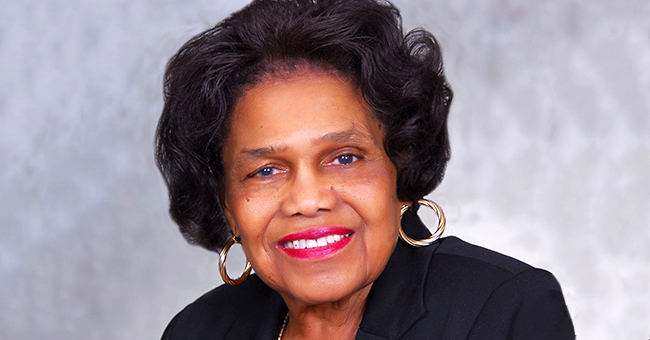
First Black Woman to Attend All-White Medical School in the South Dies at 91
Dr. Edith Irby Jones was a trailblazer for the Black community who will be remembered for her many historic firsts in the field of medicine including being the first and only Black medical student to attend an all-White medical school in Arkansas in 1948.
Edith Irby Jones, the first Black woman to enroll in an all-White Medical school in the south has passed away. According to her daughter, Myra Jones Romain, the doctor, educator, and philanthropist was 91 and died of natural causes.
SHE BECAME THE FIRST BLACK WOMAN TO ENROLL IN UAMS
Born in Conway, Arkansas, Jones made history when she became the first Black woman and the only one to be accepted at University of Arkansas for Medical Sciences in 1948. At the time there were only 185 African American medical students in the country. She ranked 28 among 230 applicants, prompting UAMS to open its doors for her. To assure the White community that no spot of theirs was taken by Jones’ acceptance, UAMS increased the year’s class size by one.
"She was a tremendous woman, and she opened so many doors for minority students. We are forever in her debt."
SHE MADE IT WORTH THE UNIVERSITY'S WHILE
Despite then-Governor Ben Laney’s opposition to her enrollment in UAMS and the discrimination she received while studying there, Jones proved to be an exceptional student. She majored in three sciences and attained honors throughout. Her daughter said Jones was grateful to UAMS for accommodating her and wanted to prove to them that she was worthy.
“Her first love has always been UAMS, because she realized that they were taking a big leap of faith in admitting her,” Romain shared. “She made a commitment to make sure that she did her part, not just to finish, not just to graduate, but to go forward after graduation and do something.”
"I decided to be a doctor, particularly for those who didn’t have the money to pay for it. That never left me.”
Upon news of her death, UAMS Chancellor Cam Patterson, M.D., MBA paid tribute to her accomplishments.
"She shook the world when she enrolled at UAMS in 1948, and we will honor her by recognizing that the journey she started is not done," Patterson said. “Dr. Jones has had a dramatic, lasting impact on health care that will never, ever go away. She was a tremendous woman, and she opened so many doors for minority students. We are forever in her debt."
HER DIFFICULT PAST PROMPTED HER TO PURSUE MEDICINE
Jones’ determination to become a doctor stemmed from her humble beginnings as a daughter of a sharecropper and domestic worker. Her father died when she was only eight and her sister, at 12, died of typhoid fever. Jones herself was forced to skip school for a year when she was seven after she lost her ability to walk due to rheumatic fever. At eight, she had to fend for her family when her mother broke a vein in her leg and was unable to provide for them. She helped a doctor take care of his 18-month-old child in his home.
These unfortunate circumstances urged her to pursue a career in medicine and to help others who couldn’t afford medical assistance. Jones opened up about it to the Chronicle in 2002.
“At that time, I decided to be a doctor, particularly for those who didn’t have the money to pay for it. That never left me,” she said.
As a civil rights activist who worked closely with Dr. Martin Luther King, Jr. and the only physician to be a part of the “Freedom Four,” Jones urged people to join the Civil Rights Movement.
SHE ACHIEVED MANY FIRSTS THROUGHOUT HER CAREER
Jones’ commitment to her practice led her to achieve so much in her lifetime. After receiving her medical degree from Arkansas in 1952, she practiced in Hot Springs then became the first Black female resident at Baylor College of Medicine in Houston. In 1985, she became the first female president of the National Medical Association. She was also one of the founders of the Association of Black Cardiologists.
SHE WASN'T JUST A MEDICAL PRACTITIONER
But her time was not limited to the practice of medicine or the United States. As a civil rights activist who worked closely with Dr. Martin Luther King, Jr. and the only physician to be a part of the “Freedom Four,” Jones urged people to join the Civil Rights Movement. She also established health care services in Haiti, Mexico, Cuba, China, Russia and throughout Africa. While practicing medicine, she taught at the University of Texas Medical School and Baylor College of medicine until she reluctantly retired in 2013.
Jones married psychology professor Dr. James B. Jones on her second year in college. They were together until his death in 1989. They are survived by their three children, Gary, Mrya, and Keith.
Jones’ funeral will be held on Saturday at the Antioch Missionary Baptist Church.
